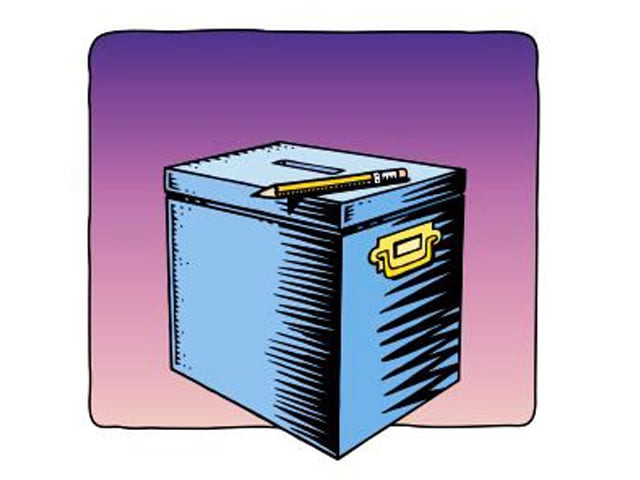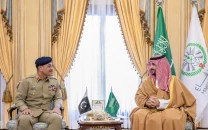2013 election coverage: ‘ECP’s media code vague, restrictive’
Expert call for utilising media’s role to ensure free and fair elections.

The code of conduct for media proposed by the Election Commission of Pakistan (ECP) for upcoming elections is vague, general and restrictive and should be made more well-defined, specific and less prohibitive.
These suggestions were made by journalists, media analysts and civil society members during a consultative meeting held by the Centre for Civic Education (CCE) here on Thursday.
The meeting revealed that the ECP came up with their seven-point code without even consulting any media representative bodies. Moreover, the commission did not even disseminate the guidelines to the media.
CCE Director Zafarullah Khan said the ECP released the code on November 8, the same day it released the much-discussed code of conduct for political parties.
The ECP has said if it does not receive any recommendations within two weeks, it will consider the silence as a tacit approval for the proposed code, he explained.
The proposed guidelines state “no radio/television channel shall broadcast or print media shall publish anything that adversely affects public opinion against a particular political party or a candidate.”
It also stops broadcast media from airing “any comment, discussion, advertisement, documentary and talk shows” during the 48 hours before the election day.
Similarly, they state that print media “shall also refrain” from publishing material for or against political parties during this period.
Another point states that the media shall only announce election results issued by presiding officer, returning officer or the ECP. This suggests that media might not be able to rely on the traditional sources, such as polling agents, to announce unofficial election results.
The participants mulled over the proposed code and talked about ways in which it could be improved.
Shemrez Nauman, a participant, said instead of prohibiting and constraining the media through restrictive guidelines, ECP could use the media as allies.
“The media can play a positive role in making the elections free, fair and transparent by exposing illegal activities,” he said. “The ECP should recognise this potential and utilise it.”
Another interesting point in the code is that the Pakistan Electronic Media Regulatory Authority (Pemra) will ensure all political parties get “balanced coverage.” Pemra has also been asked to monitor the coverage in the guidelines.
Pemra officials who attended the meeting said the authority monitors 50 channels round the clock for content, but monitoring the election coverage of numerous TV channels and around 150 FM radio stations would be difficult.
Some of the points are quite vague and general. For example, one code says “remarks about personal life of an individual shall be avoided in print and electronic media.”
“These points have been written in a broad sense,” said Pemra Nasir Ayaz, General Manager (Legal) of PEMRA. “These will give rise to discretion and interpretation issues.”
Some journalists argued that the election coverage should be brought in line through legal procedures and enforcement of statutory obligations.
They suggested the need for monitoring media’s election coverage and a “name and shame” practice to expose the wrongdoings of media houses.
Press Council of Pakistan Chairman Shafqat Abbasi said he had met with ECP officials recently but wasn’t informed about the release of the proposed code. He said the PCP intends to hold meetings with journalist organisations to come with recommendations for the ECP’s media guidelines.
Published in The Express Tribune, November 16th, 2012.



















COMMENTS
Comments are moderated and generally will be posted if they are on-topic and not abusive.
For more information, please see our Comments FAQ